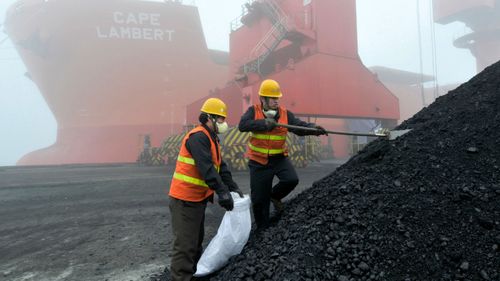Share this @internewscast.com
Energy analysts are indicating that South Korea’s recent commitment to eliminate thermal coal usage should serve as a significant alert for Australia’s fossil fuel sector.
This week, South Korea, a key buyer of Australian thermal coal, announced its membership in the Powering Past Coal Alliance (PPCA), pledging to eliminate its coal-fired power plants by 2040.
Environmental advocates have praised this decision, as it aligns with their efforts to persuade major industrialized countries to shift from fossil fuels to renewable energy alternatives.

Currently ranked as the fourth-largest coal importer globally, South Korea relies heavily on coal to support its industrial activities and to provide heating for homes.
However, there is a noticeable transition occurring as South Korean steel manufacturers are developing coal-free steel production facilities, leading to a gradual decrease in coal demand.
South Korea’s recent decision, along with similar commitments from other countries, poses significant challenges for Australian coal exporters.
The value of Australian coal exports to South Korea is worth about $2.4 billion a year, data analytics company Kpler said.
The Australian Office of the Chief Economist has forecast a near 15 per cent decline in global thermal coal demand in the three years to 2027.
Thermal coal, along with iron ore, liquified gas and coking coal, make up Australia’s four largest commodity exports from last year.
Climate Energy Finance director Tim Buckley said those major exporters would be “terminally challenged” over coming decades as countries shifted to renewable energy to meet commitments under the 2015 Paris agreement.
“This should send a strong reminder to Australia as the second largest exporter of thermal coal behind only Indonesia that our key trade partners are responding to climate science and their treaty obligations,” he said.
“Australia needs to pivot our export focus to low emissions industries of the future, in particular exporting green iron and aluminium, critical minerals and lithium hydroxide to help our key trade partners jointly deliver on their decarbonisation objectives.”













